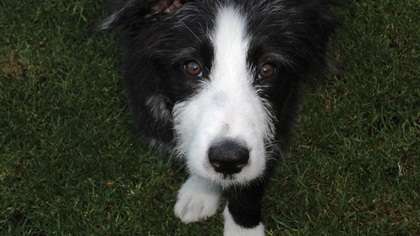In a study which delves further into the nature versus nurture debate, scientists in the evolutionary biology lab at Abertay University have come upon some surprising results.
By studying the ability of dogs to follow human-given cues, researchers have found that dogs pay much more attention to the behaviour of their owner and may one day be able use what they learn to predict the behaviour of 'their human'.
Although it is well established that all dogs possess the ability to follow human-given cues, there is some debate as to whether this is something that is innate or something that is learned.
The results from this study suggest it is a mixture of both, as Dr Clare Cunningham, explains:
"In this study, we looked at three different groups of dogs: highly trained, competitive dogs, pet dogs with basic training, and abandoned dogs from an animal shelter.
"We thought that the level of training the dogs had would affect their ability to follow the cues they were given, but were surprised that it made no difference at all.
"What did make a difference, was the level of familiarity the dog had with the person giving the cue. And this was interesting because it shows that, as well as having a genetic predisposition to follow human-given cues, this ability is heightened by the dogs' familiarity with 'their human'.
"So what this study suggests is that dogs get to know what it is that their owners want them to do – improving their skills beyond what is down to genetics. They are acutely sensitive to the wishes of the people they interact with, so in a few more million years, it may be that selection leads to this ability becoming even more heightened so that they can tell what their owner wants them to do, even before a cue is given."
More information: Effect of training and familiarity on responsiveness to human cues in domestic dogs (Canis familiaris) Clare L. Cunningham, Mari F. Ramos. Animal Cognition, December, 2013. DOI: 10.1007/s10071-013-0714-z
Journal information: Animal Cognition
Provided by University of Abertay Dundee





















